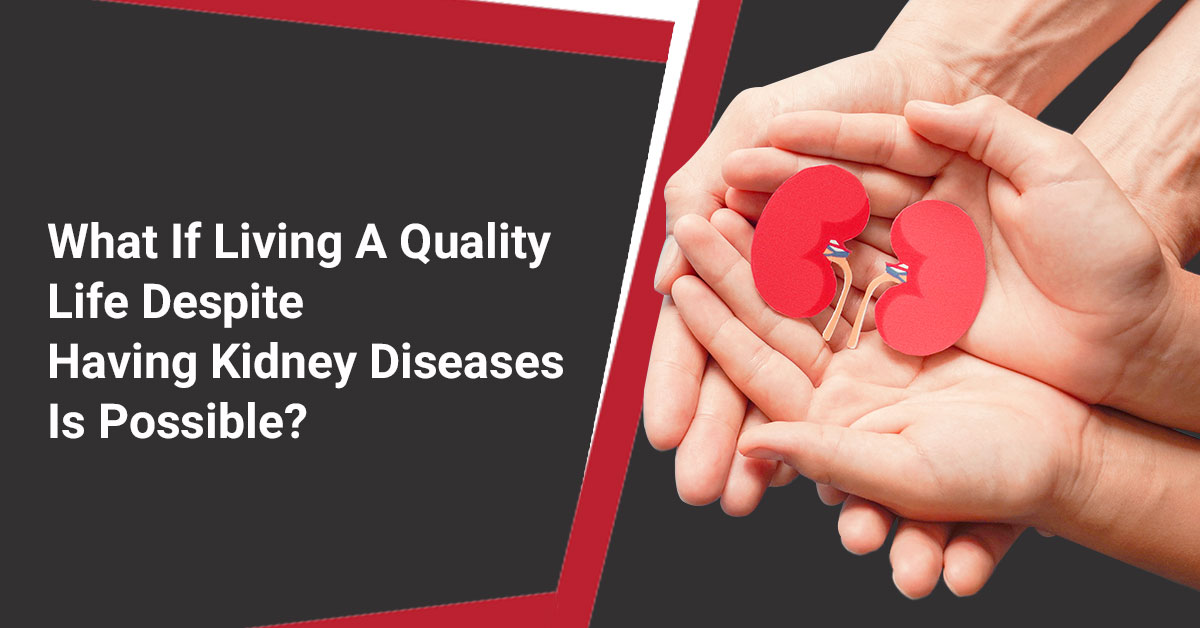Is Living a Quality Life with Kidney Disease Possible?

The two kidneys in the human body are very vital organs required for our body to function properly. The kidneys filter out all the unwanted substances from the blood and pass it out as urine and keep the right number of electrolytes. The blood is filtered about forty times a day by the kidneys. When the blood is run through the kidneys, they filter out the waste and adjust the salt, minerals, water and essential vitamins as per the body’s requirement. The filtered blood circulates in the body collecting more impurities and waste produced by the body and carrying it to the kidneys, repeating the cycle.
While we have two functioning kidneys, people can still carry on with their normal lifestyle with only one kidney. One kidney will be able to sustain the load of filtering the blood and sending out the impurities perfectly.
To answer the question “ is living a normal life with kidney disease possible?”, Chronic Kidney Disease or CKD is a disease where the kidneys do not filter blood as they should. The risk of CKD increases if the patient already has a history of diabetes or high blood pressure. People suffering from CKD and their caretakers should be educated on the disease. Hundreds of millions of people suffer from CKD worldwide and most of them lead a normal life because they are properly informed and follow the instructions given by their healthcare professionals. Furthermore, with the proper diet and medications, people with kidney diseases can live long and normal lives.
A practical and holistic approach should be there to treat the CKD symptoms that go beyond traditional oral medication and diet. Patients can be affected by pain, sleep issues, depression, stress and many other factors when subjected to CKD and the treatment. It becomes the duty of the caretakers and doctors to identify these issues and provide appropriate treatment.
There are many treatment options for various kidney disease-related symptoms but CKD has no cure. Treatment of CKD usually works for managing the symptoms, reducing complications, and prolonging the progression of the disease. If a patient reaches the end stage of CKD and kidneys are severely damaged, the patient might need end-stage kidney disease treatment.
Treatment in the early stages include
- Medication for high blood pressure
- Medication to control bad cholesterol levels in the blood
- Anaemia medication
- Following a low-protein diet to reduce the wastage produced by the body
- Swelling medication
End-stage CKD treatment may include dialysis or a kidney transplant. Dialysis is an artificial process to filter blood because the kidneys can no longer function.
Surgically transplanting a healthy kidney in the patient so that at least one kidney can function so that the patient can lead a relatively normal life. A kidney transplant is usually the last resort when dealing with CKD.
Regency Healthcare is a group of hospitals where patients can find the best care for kidney-related problems. Renal Science and dialysis are explored at Regency Healthcare with the help of cutting-edge technology.
Request a call back


 Call-an-Ambulance
Call-an-Ambulance



